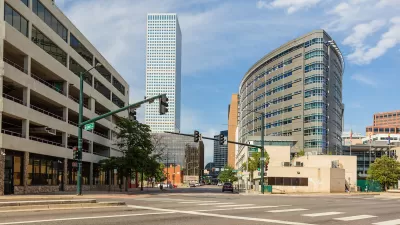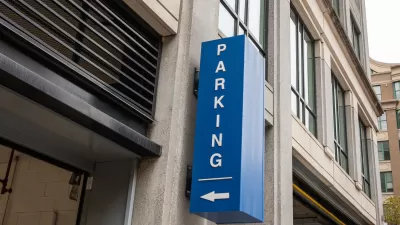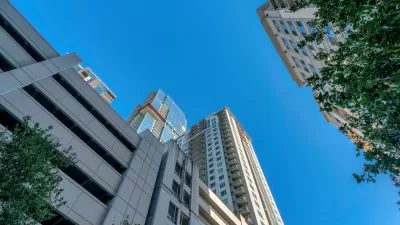The city approved changes called for by a May resolution that eliminate parking requirements in all neighborhoods.

Austin became one of the largest U.S. cities to eliminate parking requirements citywide, reports Audrey McGlinchy for KUT News. Earlier this year, the city council voted in favor of a resolution tasking city staff with removing parking requirements from city code. The revised rules were approved last week.
According to the article, “City rules still require builders to provide parking spots for disabled people, per the Americans with Disabilities Act. In addition, special zoning districts within the city would still be under the city’s former parking minimum rules, including neighborhoods like Hyde Park.”
The city hopes the move will help nudge more people toward public transit as well as create more affordable housing. “In Austin, city departments say one parking spot can cost a developer anywhere from $5,000 to $60,000, depending on whether they’re building a surface parking lot or a concrete garage.”
FULL STORY: Austin becomes one of the largest cities in the country to get rid of parking requirements

Study: Maui’s Plan to Convert Vacation Rentals to Long-Term Housing Could Cause Nearly $1 Billion Economic Loss
The plan would reduce visitor accommodation by 25,% resulting in 1,900 jobs lost.

North Texas Transit Leaders Tout Benefits of TOD for Growing Region
At a summit focused on transit-oriented development, policymakers discussed how North Texas’ expanded light rail system can serve as a tool for economic growth.

Why Should We Subsidize Public Transportation?
Many public transit agencies face financial stress due to rising costs, declining fare revenue, and declining subsidies. Transit advocates must provide a strong business case for increasing public transit funding.

How to Make US Trains Faster
Changes to boarding platforms and a switch to electric trains could improve U.S. passenger rail service without the added cost of high-speed rail.

Columbia’s Revitalized ‘Loop’ Is a Hub for Local Entrepreneurs
A focus on small businesses is helping a commercial corridor in Columbia, Missouri thrive.

Invasive Insect Threatens Minnesota’s Ash Forests
The Emerald Ash Borer is a rapidly spreading invasive pest threatening Minnesota’s ash trees, and homeowners are encouraged to plant diverse replacement species, avoid moving ash firewood, and monitor for signs of infestation.
Urban Design for Planners 1: Software Tools
This six-course series explores essential urban design concepts using open source software and equips planners with the tools they need to participate fully in the urban design process.
Planning for Universal Design
Learn the tools for implementing Universal Design in planning regulations.
Ascent Environmental
Borough of Carlisle
Institute for Housing and Urban Development Studies (IHS)
City of Grandview
Harvard GSD Executive Education
Toledo-Lucas County Plan Commissions
Salt Lake City
NYU Wagner Graduate School of Public Service





























